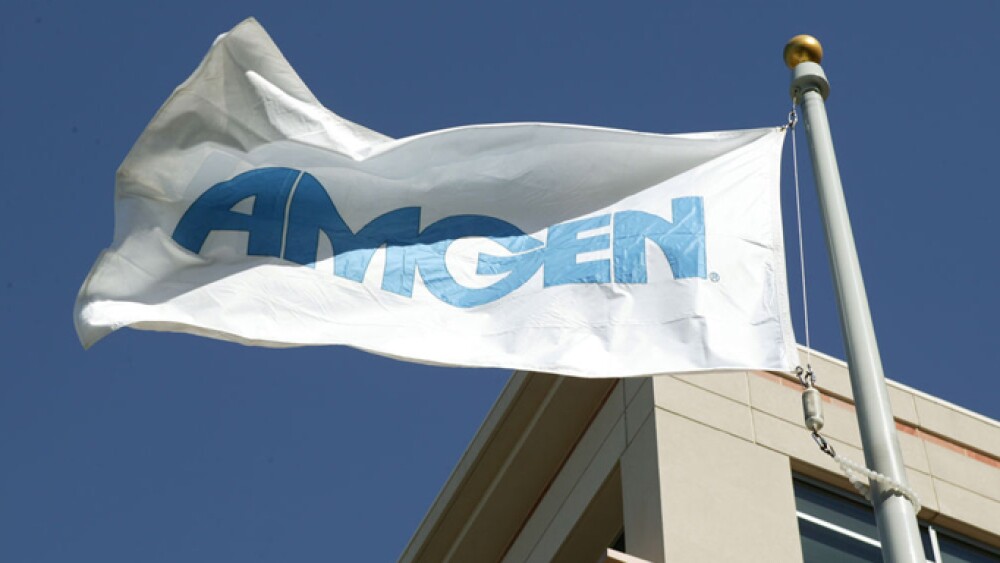September 26, 2016
By Alex Keown, BioSpace.com Breaking News Staff
THOUSAND OAKS, Calif. – Amgen ’s shot at AbbVie has been cleared by the U.S. Food and Drug Administration (FDA) after the regulatory agency approved Amjevita, the California-based company’s biosimilar to blockbuster Humira. The FDA gave its nod to Amjevita on Sept. 23.
Amjevita is the first adalimumab biosimilar approved by the FDA and has been approved for the treatment of seven inflammatory diseases, including moderate-to-severe rheumatoid arthritis, moderate-to-severe polyarticular juvenile idiopathic arthritis, psoriatic arthritis, ankylosing spondylitis, moderate-to-severe chronic plaque psoriasis, adult moderate-to-severe Crohn’s disease and moderate-to-severe ulcerative colitis. This is the first approved biosimilar for Amgen. The company has eight other biosimilars in development in its pipeline.
In addition to its Humira biosimilar, Amgen also has another rheumatoid arthritis drug in its arsenal, Enbrel.
Biosimilars, which are made inside a living cell, are always uniquely different in composition, which differentiates them from generic drugs, which are exact replicas of other drugs. They have been widely available in Europe since 2006, but the FDA was only granted the right to review and approve them when Obamacare was passed in 2010.
While Amgen has been successful with this biosimilar, it is facing its own challenges from biosimilars being developed by other companies. Four of Amgen’s drugs are facing the threat of biosimilar drugs, including the cancer drug Neupogen, which is used to treat neutropenia, which is caused by a lack of certain white blood cells due to cancer. Another Amgen drug facing biosimilar threats from Sandoz and Pfizer ’s subsidiary Hospira is the anemia drug Epogen. Amgen has been fiercely contesting threats against these drugs in U.S. courts. In September 2015, Novartis and Sandoz launched the first approved biosimilar Zarxio in the United States after a U.S. court denied Amgen’s appeals to block sales of the drug, which is a “copycat” version of that company’s blockbuster treatment Neupogen.
Amjevita’s approval was based on a data package showing biosimilarity to Humira (adalimumab) based on analytical, nonclinical, pharmacokinetic and clinical data, including results from two Phase III studies conducted in moderate-to-severe plaque psoriasis and moderate-to-severe rheumatoid arthritis patients. Amjevita is delivered in prefilled syringe and autoinjector doses.
“Approval of Amjevita is an exciting accomplishment as it marks a new chapter in Amgen’s story of being a leader in biotechnology. In addition, Amjevita holds the potential to offer patients with chronic inflammatory diseases an additional treatment option,” Sean Harper, executive vice president of research and development at Amgen, said in a statement. “This milestone exemplifies our ongoing dedication to the development of high quality biologic medicines.”
Amgen’s Amjevita is not the first biosimilar to win approval to treat RA. In April, the FDA approved Celltrion’s biosimilar to Janssen Biotech Inc. ‘s Remicade (infliximab).
Amgen said Amjevita is under review by the European Medicines Agency.
Humira has been responsible for the majority of AbbVie’s revenue, but as it loses patent protection, it is facing increased competition from other RA drugs, including AstraZeneca ’s Acalabrutinib. Humira is expected to continue to be a strong driver of revenue for AbbVie, particularly as the company looks to use the drug in other treatment areas, including non-infectious intermediate, posterior and panuveitis.
Shares of both Amgen and AbbVie are down this morning, trading at $173.31 and $64.34 respectively.





